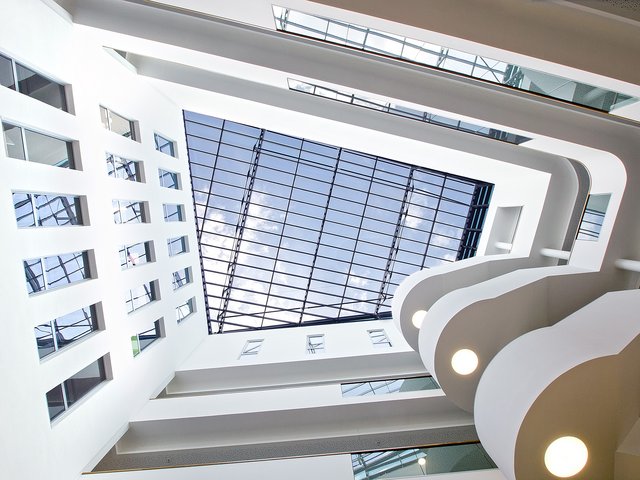LIN Personal
Dr. Erika Atucha Trevino
Wissenschaftlerin
Funktionelle Architektur des Gedächtnisses
Leibniz-Institut für NeurobiologieBrenneckestr. 6
39118 Magdeburg
Deutschland
Telefon: +49 391 6263 94501
E-Mail: Erika.Atucha-Trevino@lin-magdeburg.de
ORCID: 0000-0002-9852-8676
- Publikationen
Publikationen
Ku S-P, Atucha E, Alavi N, Mulla-Osman H, Kayumova R, Yoshida M, Csicsvari J, Sauvage MM. 2024. Phase locking of hippocampal CA3 neurons to distal CA1 theta oscillations selectively predicts memory performance. Cell Reports. 43(6):Article 114276. https://doi.org/10.1016/j.celrep.2024.114276Atucha E, Ku S-P, Lippert MT, Sauvage MM. 2023. Recalling gist memory depends on CA1 hippocampal neurons for lifetime retention and CA3 neurons for memory precision. Cell Reports. 42(11):Article 113317. https://doi.org/10.1016/j.celrep.2023.113317Mahnke L, Atucha E, Pina-Fernàndez E, Kitsukawa T, Sauvage MM. 2021. Lesion of the hippocampus selectively enhances LEC's activity during recognition memory based on familiarity. Scientific Reports. 11(1):Article 19085. https://doi.org/10.1038/s41598-021-98509-4Oulé M, Atucha E, Wells TM, Macharadze T, Sauvage MM, Kreutz MR, Lopez-Rojas J. 2021. Dendritic Kv4.2 potassium channels selectively mediate spatial pattern separation in the dentate gyrus. iScience. 24(8):102876. https://doi.org/10.1016/j.isci.2021.102876Atucha E, Ku S-P, Lippert M, Sauvage M. 2021. Remembering the gist of an event over a lifetime depends on the hippocampus. bioRxiv. https://doi.org/10.1101/2021.04.14.439803Mahnke L, Atucha E, Kitsukawa T, Sauvage MM. 2020. Recognition memory: familiarity signals increase selectively in the lateral entorhinal cortex following hippocampal lesions. bioRxiv. https://doi.org/10.1101/2020.06.16.131763Sauvage M, Kitsukawa T, Atucha E. 2019. Single-cell memory trace imaging with immediate-early genes. Journal of Neuroscience Methods. 326:108368. https://doi.org/10.1016/j.jneumeth.2019.108368Flasbeck V, Atucha E, Nakamura NH, Yoshida M, Sauvage MM. 2018. Spatial information is preferentially processed by the distal part of CA3: implication for memory retrieval. Behavioural Brain Research. 347:116-123. https://doi.org/10.1016/j.bbr.2018.07.023Beer Z, Vavra P, Atucha E, Rentzing K, Heinze HJ, Sauvage MM. 2018. The memory for time and space differentially engages the proximal and distal parts of the hippocampal subfields CA1 and CA3. PLoS Biology. 16(8):e2006100. https://doi.org/10.1371/journal.pbio.2006100Atucha E, Karew A, Kitsukawa T, Sauvage MM. 2017. Recognition memory: Cellular evidence of a massive contribution of the LEC to familiarity and a lack of involvement of the hippocampal subfields CA1 and CA3. Hippocampus. 27(10):1083-1092. https://doi.org/10.1002/hipo.22754Atucha E, Vukojevic V, Fornari RV, Ronzoni G, Demougin P, Peter F, Atsak P, Coolen MW, Papassotiropoulos A, McGaugh JL, et al. 2017. Noradrenergic activation of the basolateral amygdala maintains hippocampus-dependent accuracy of remote memory. Proceedings of the National Academy of Sciences of the United States of America. 114(34):9176-9181. https://doi.org/10.1073/pnas.1710819114Lux V, Atucha Trevino E, Kitsukawa T, Sauvage MM. 2016. Imaging a memory trace over half a life-time in the medial temporal lobe reveals a time-limited role of CA3 neurons in retrieval. eLife. 5(FEBRUARY2016):Article e11862. https://doi.org/10.7554/eLife.11862

